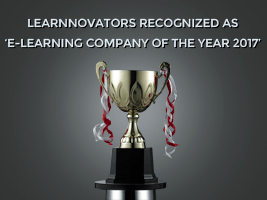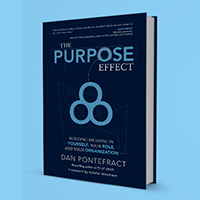Search for...
#learnnovators Bookmarks
Published Bookmarks
 Learnnovators Is 'E-Learning Company Of The Year 2017' - eLearning Industry
Learnnovators Is 'E-Learning Company Of The Year 2017' - eLearning Industry
Learnnovators, a leading provider of innovative e-learning solutions, has been awarded ‘E-Learning Company of the Year 2017’ by The CEO Magazine.
 9 WAYS TO SUPPORT LEARNERS THROUGH THEIR MOBILE DEVICES
9 WAYS TO SUPPORT LEARNERS THROUGH THEIR MOBILE DEVICES
There are myriad ways to leverage mobile technologies for learning and performance development. Here are a few of them.
 5 GAMES EVERY E-LEARNING PROFESSIONAL SHOULD PLAY
5 GAMES EVERY E-LEARNING PROFESSIONAL SHOULD PLAY
You can narrow down someone’s age by whether they include spaces in their file names. If they do, they’re under 40. That is a sweeping declaration, and quite possibly true. Here’s another one… Gamers are a sub-culture dominated by young men.
 MOBILE LEARNING : FROM THE LEARNER'S PERSPECTIVE
MOBILE LEARNING : FROM THE LEARNER'S PERSPECTIVE
Mobile learning might be a great new tool in your organization’s toolkit, but how is it perceived by users? What kinds of content do they access, and how do they learn? Finally, what can we do to bring our solutions closer to these usage patterns?
 VIRTUAL DUALITY
VIRTUAL DUALITY
Something struck me during this year’s Virtual Reality Working Out Loud Week. Billed as an event for “anyone who is working with or experimenting with virtual reality, whether that be at home, at school or at work”, this was the second time I had run it. Again I was keen for our peers in L&D and other industries to share what they are doing with this emerging technology.
 FREE E-BOOK: THE ULTIMATE GUIDE TO SUCCESSFUL ELEARNING IMPLEMENTATION AT THE WORKPLACE
FREE E-BOOK: THE ULTIMATE GUIDE TO SUCCESSFUL ELEARNING IMPLEMENTATION AT THE WORKPLACE
In this free eBook, we give you a complete rundown of what it takes to make a success of eLearning implementation at the workplace, right from defining the strategy to evaluating the program.
 DESIGN THINKING FOR LEARNING INNOVATION - A PRACTICAL GUIDE
DESIGN THINKING FOR LEARNING INNOVATION - A PRACTICAL GUIDE
I’ve previously written about the potential fail points of creating 70:20:10 solutions and, in that context, a design thinking process can be crucial in establishing what not to build, instead revealing simple and realistic elements that can be embedded in the workflow of our audience.
 Everybody’s Got Something To Teach...!!!
Everybody’s Got Something To Teach...!!!
Now I am an Instructional Designer (ID) and I have taken those three words in Latin as canon every day of my life. When I joined as an ID at Learnnovators, the first thing that one of my colleagues told me was that an ID must have a great passion for learning. Read on...
 INFOGRAPHIC: High Performance Learning Ecosystems
INFOGRAPHIC: High Performance Learning Ecosystems
I’ve previously written about the need to design learning & high performance ecosystems here, and have been reflecting on some common ingredients for effective ones. I’ve captured some of these in the infographic below:
 The Purpose Effect - Book Review & Interview With Dan Pontefract
The Purpose Effect - Book Review & Interview With Dan Pontefract
We, at Learnnovators, have had the privilege to review Dan Pontefract's second book, "The Purpose Effect" that is scheduled to release on May 10, 2016. Check out our review of the book and interview with Dan here...
Submit Bookmark


